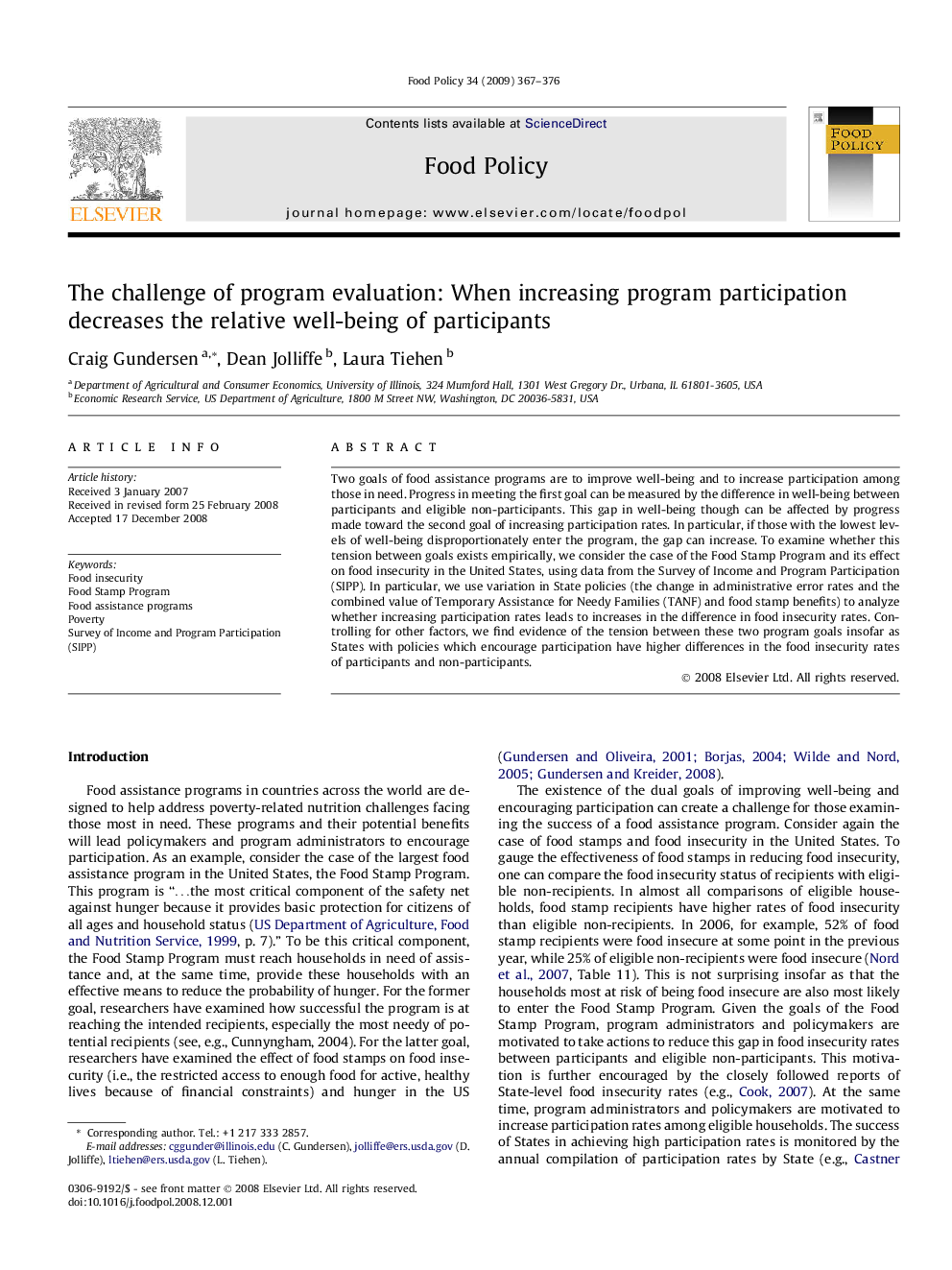| کد مقاله | کد نشریه | سال انتشار | مقاله انگلیسی | نسخه تمام متن |
|---|---|---|---|---|
| 5071011 | 1373291 | 2009 | 10 صفحه PDF | دانلود رایگان |
عنوان انگلیسی مقاله ISI
The challenge of program evaluation: When increasing program participation decreases the relative well-being of participants
دانلود مقاله + سفارش ترجمه
دانلود مقاله ISI انگلیسی
رایگان برای ایرانیان
کلمات کلیدی
موضوعات مرتبط
علوم زیستی و بیوفناوری
علوم کشاورزی و بیولوژیک
دانش تغذیه
پیش نمایش صفحه اول مقاله

چکیده انگلیسی
Two goals of food assistance programs are to improve well-being and to increase participation among those in need. Progress in meeting the first goal can be measured by the difference in well-being between participants and eligible non-participants. This gap in well-being though can be affected by progress made toward the second goal of increasing participation rates. In particular, if those with the lowest levels of well-being disproportionately enter the program, the gap can increase. To examine whether this tension between goals exists empirically, we consider the case of the Food Stamp Program and its effect on food insecurity in the United States, using data from the Survey of Income and Program Participation (SIPP). In particular, we use variation in State policies (the change in administrative error rates and the combined value of Temporary Assistance for Needy Families (TANF) and food stamp benefits) to analyze whether increasing participation rates leads to increases in the difference in food insecurity rates. Controlling for other factors, we find evidence of the tension between these two program goals insofar as States with policies which encourage participation have higher differences in the food insecurity rates of participants and non-participants.
ناشر
Database: Elsevier - ScienceDirect (ساینس دایرکت)
Journal: Food Policy - Volume 34, Issue 4, August 2009, Pages 367-376
Journal: Food Policy - Volume 34, Issue 4, August 2009, Pages 367-376
نویسندگان
Craig Gundersen, Dean Jolliffe, Laura Tiehen,